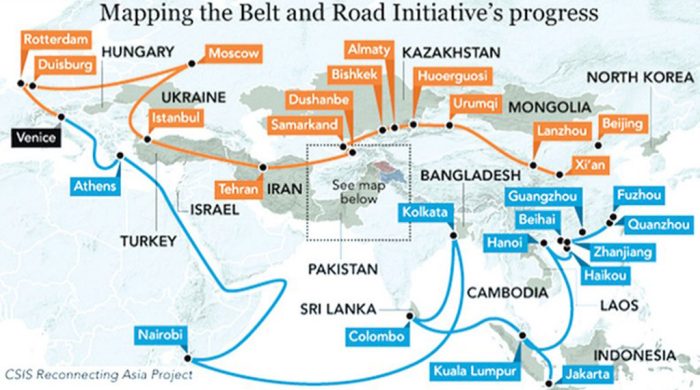‘Liberate Hong Kong’: The slogan that will land you in jail

- Update Time : Sunday, August 1, 2021
- 229 Time View

It was one of the defining phrases of the Hong Kong protest movement. Now, it has landed one man in jail for nine years.
Back in 2019, “Liberate Hong Kong, revolution of our times” was an ubiquitous slogan in the city, chanted by tens of thousands as they took to the streets in pro-democracy demonstrations.
But this week a man was convicted partly because he was carrying a flag emblazoned with the phrase.
Activists say the landmark ruling marks “the beginning of the end” for freedom of expression in Hong Kong.
Where did the slogan come from?
The eight-character phrase was first used by Hong Kong politician Edward Leung back in 2016, when he ran for a by-election and used it as a campaign slogan.
At the time he was one of the leaders of Hong Kong Indigenous, a political party that advocates for independence for the city.
Leung said the slogan “represents the people who believe in freedom, embrace freedom, and are willing to fight for freedom with their blood and sweat”, according to the South China Morning Post.
It did not gain traction back then. Polls consistently indicated that the majority of Hongkongers did not favour independence from the mainland.
But it was a different story three years later as the pro-democracy protests erupted and anger at the Hong Kong government grew
The phrase was frequently chanted at rallies, with many waving or wearing black flags, signs and T-shirts with the slogan printed in white Chinese and English lettering.
Why is the slogan now considered illegal?
As early as 2016, Hong Kong authorities had objected to the phrase, with chief executive Carrie Lam saying at the time that it “challenges national sovereignty” and threatened China’s “one country two systems” model in governing Hong Kong.
But it wasn’t until 30 June 2020 that China’s controversial and broadly-worded national security law came into effect in Hong Kong.
Among other things, the law bans anything considered as “crimes of secession and subversion” – effectively clamping down on protest slogans.
Just a day later – on the anniversary of Hong Kong’s handover from British to Chinese rule – Tong Ying-kit drove a motorcycle into a group of police officers while carrying a flag emblazoned with the “Liberate Hong Kong” slogan.
The Hong Kong government later said the slogan connoted “Hong Kong independence” and warned people not to defy the national security law.
Earlier this week a court in Hong Kong found Tong – the first person to be charged under the law – guilty of inciting secession and terrorism.
What does the slogan really mean?
Among other points, Tong’s 15-day trial – which took place without a jury – focused on the meaning of the phrase and whether it really advocates independence from China.
The prosecution had argued that the phrase could only be interpreted literally, and pointed to the fact that it had been coined by a pro-independence politician.
But the defence argued that the phrase’s meaning had evolved since then and was more ambiguous.
It called on experts who said that the phrase could now be interpreted as a call for “historical change” and a wish to “reclaim” Hong Kong from a recent influx of mainlanders.
In the end, the three judges presiding over the case ruled that the phrase itself was “capable of inciting others to secession”.
The landmark judgment, where Tong received nine years in jail, has now set a precedent and is likely to figure in other cases.
Several others who have used the “Liberate Hong Kong” slogan have been arrested or charged under the National Security Law or other laws that forbid sedition.
Hong Kong human rights lawyer Mark Daly expressed concern about what he called “a lack of restraint” in using such laws, some of which were “vaguely drafted… without meaningful input from Hong Kong”.
There is “a lack of human rights protections for any sense of balance, particularly freedom of speech,” he told the BBC.
Rights groups say that the judgment has a chilling effect on Hong Kong society.
Amnesty International’s Asia-Pacific regional director Yamini Mishra said that convicting someone for using a “widely-used political slogan is a violation of international law, under which expression must not be criminalised unless it poses a concrete threat.
“The conviction of Tong Ying-kit is a significant and ominous moment for human rights in Hong Kong.”





















